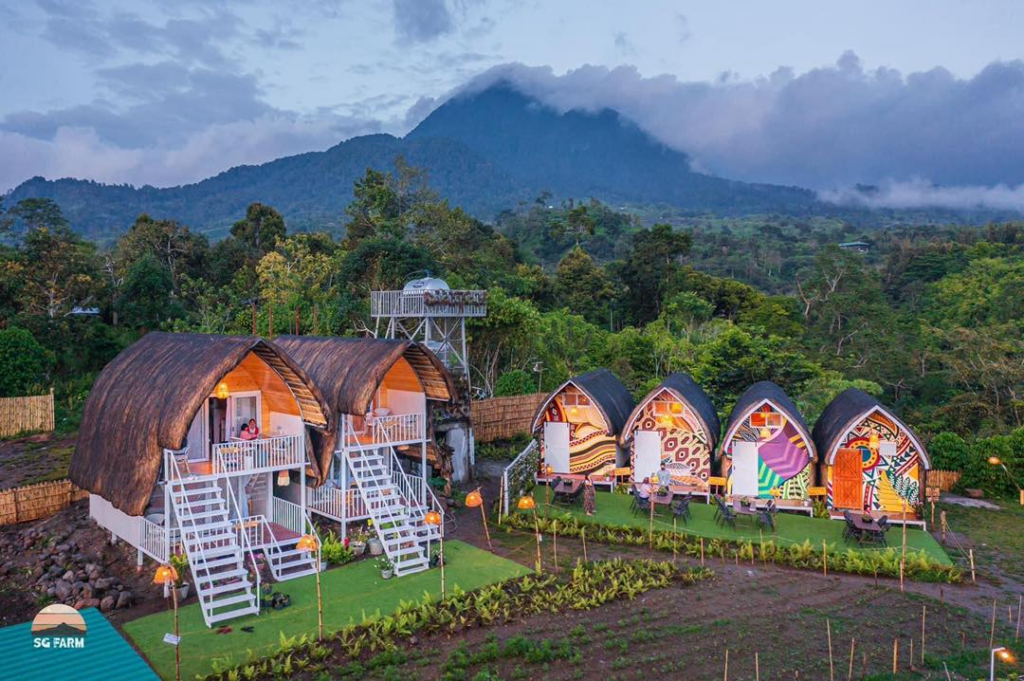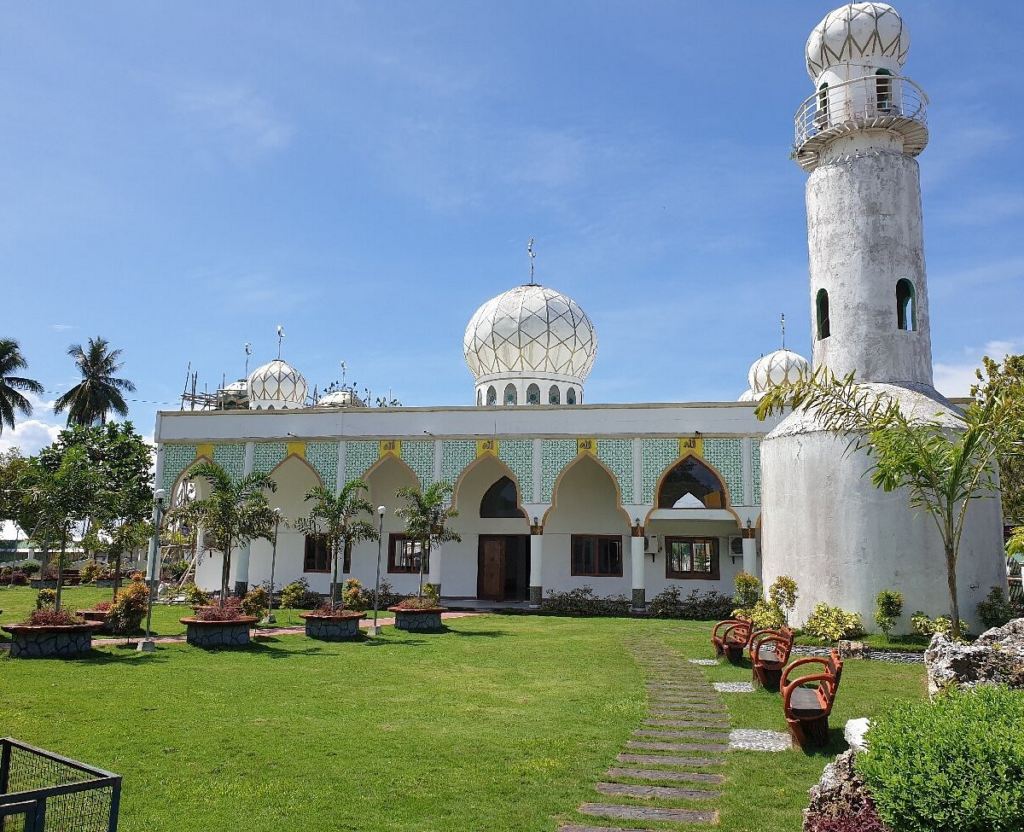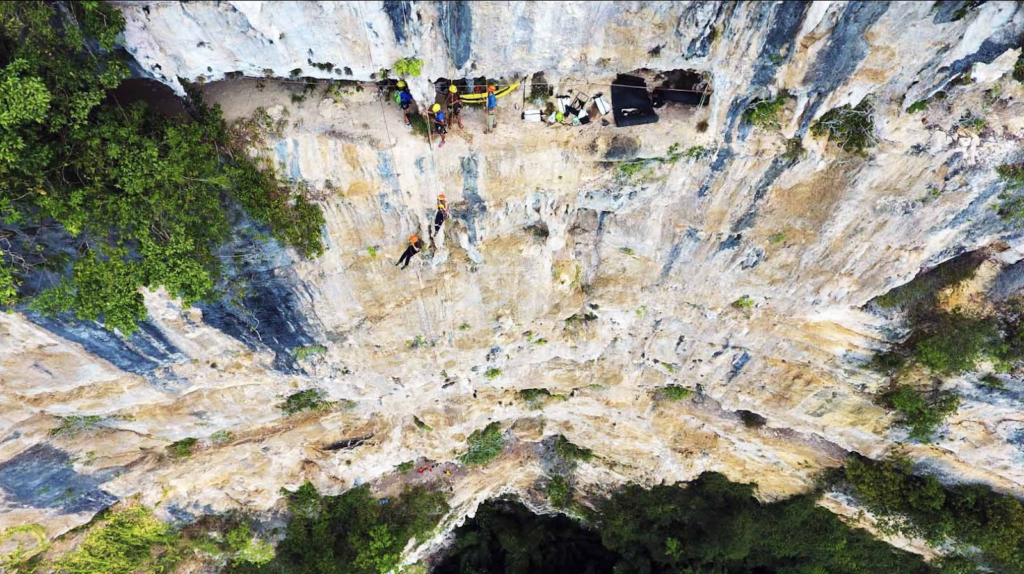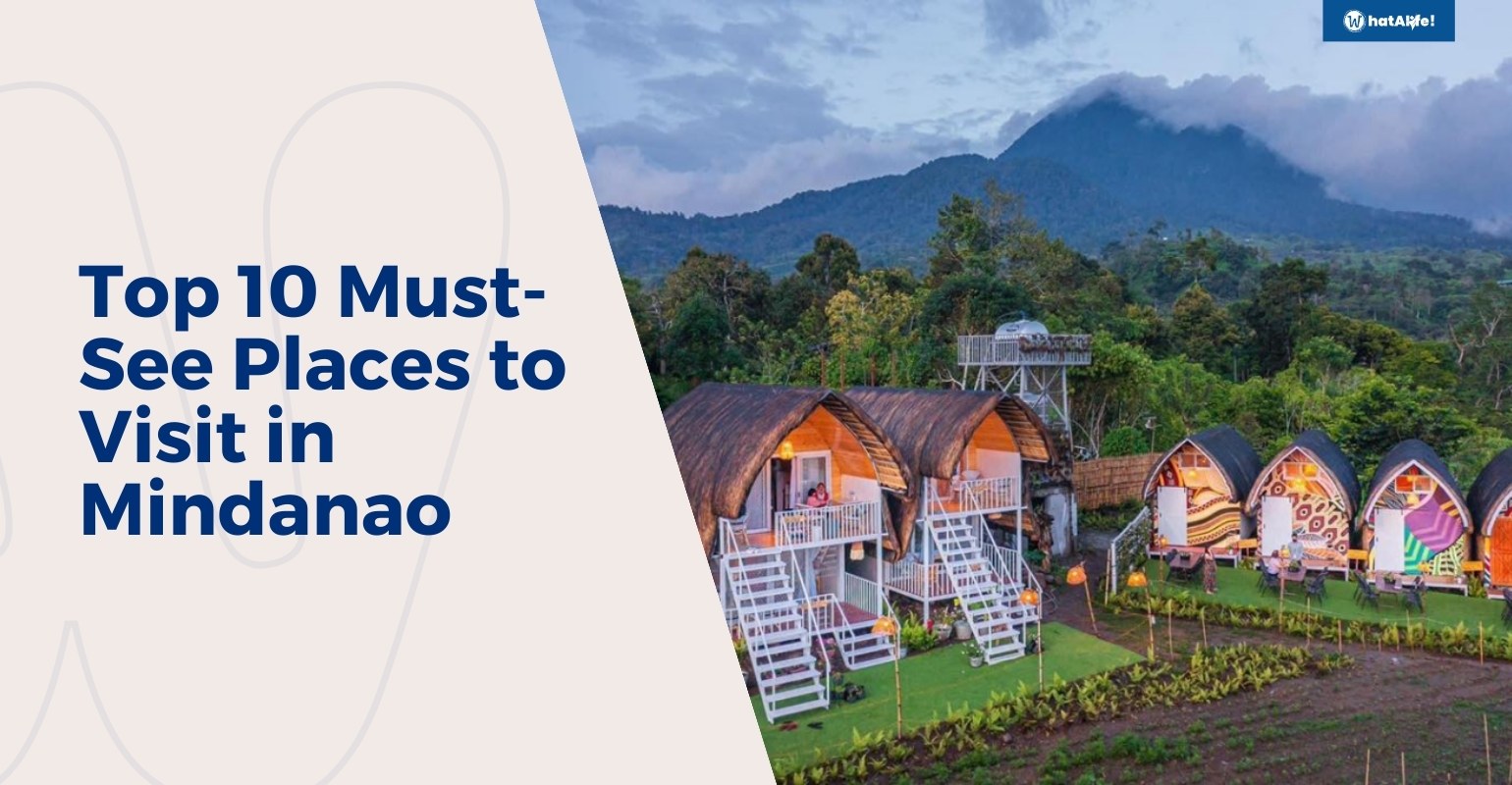Mindanao, the second-largest island in the Philippines, is home to thirteen Muslim tribes, Christians, indigenous peoples, and a diverse range of flora and fauna. Known as the breadbasket of the Philippines, its rich blend of cultures, languages, and traditions makes it a captivating destination for travelers in search of authentic cultural experiences. Despite its image being tainted by media coverage, Mindanao is well worth a visit due hidden gems that may be unknown to many. In this article. we’ll provide you with a list of top places to visit in Mindanao.
Explore the lively culture and stunning scenery of the island, from the majestic heights of Mount Apo to the colorful t’nalak of the Lang Dulay Weaving Center. Soak up the Mindanaoan history and culture at the Aga Khan Museum, marvel at the beautiful landscape at the Strawberry Guyabano Farm, and encounter the majestic Philippine Eagle at its dedicated center.
- Camiguin Island

Described as the Island Born of Fire by Love the Philippines, Camiguin Island is a land blessed with natural wonders. Last April 2013, Yahoo! Philippines recognized the White Island Bar of Mambajao in Camiguin as the Number 1 beach spot tourist destination in the Philippines. My trip to Camiguin Island was unforgettable. It’s possible to explore the entire island in just one day!
- Aga Khan Museum and Natural Science Museum (Marawi City)

The Aga Khan Museum and Natural Science Museum is located in the Islamic City of Marawi, within the Mindanao State University Main Campus. The Aga Khan Museum preserves and promotes the folk art and artifacts of the Maranao people and other groups, while the Natural Science Museum emphasizes the conservation of the Philippines’ flora and fauna, particularly in the MINSUPALA Region.
In 2018, I took a field trip to the museum. We studied various artifacts, paintings, clothing, and musical instruments. We also examined preserved specimens of marine life. This visit deepened our understanding of the Maranao people’s culture and history, as well as our appreciation for Mindanao’s cultural and biological diversity.
- Strawberry Guyabano Farm (Tupi, South Cotabato)

The Strawberry Guyabano Farm, as the name suggests, boasts vibrant and colorful landscapes ideal for horticulturists and agritourism enthusiasts.
The farm utilizes hydroponics, a technique that replaces soil with a water-based nutrient solution for growing plants. Additionally, visitors can relax with family and friends in the cafe and mini bars, pick strawberries, and participate in fun activities like camping. It’s a perfect destination for people who like to chill in a sustainable farm filled with fresh air and a serene atmosphere, while also learning about modern farming techniques and enjoying fresh, organic produce.
- Philippine Eagle Center (Davao City)

The Philippine Eagle Center is home to 36 Philippine Eagles and houses 10 other bird species, 4 mammal species, and 2 reptile species. The center also provides insight into the country’s forest ecosystem. If you’re curious about the eagle on the 1000 peso bill, this is the place to visit.
- Sheik Karimul Makhdum Mosque (Tawi-Tawi)

According to local folklore, the Sheikh Karimul Makhdum Mosque was built by an Arab trader in 1380. The oldest known mosque in the Philippines, the establishment of the mosque introduced the beginning of Islamization in the Philippines.
The mosque links the Philippines to the global Muslim community and stands as a proud symbol of Islam’s deep roots in the Tawi-Tawi province and the southern region, making it a crucial visit for those exploring the history of Islam in the area.
- Masjid Al-Islamia (Zamboanga City)

Also known as the Rainbow Mosque, its colorful exterior symbolizes peace. The mosque, originally painted in white and green, was repainted after the Marawi Siege in 2017 as a tribute to the fallen heroes and a call for peace and unity in the city. The mosque’s vibrant facade attracts visitors from all walks of faith.
- Kiokong White Rock Wall (Bukidnon)

If you’re looking for an adrenaline-fueled activity that combines rock climbing, rappelling, swimming, and camping, Kiokong White Rock Wall is the perfect destination. The “vertical bivouac” attraction, widely known for its extreme adventure appeal, draws various types of tourists. Here, you can sleep on a two-meter-wide cliff ledge, 400 ft above the ground!
- Lang Dulay Weaving Center (Lake Sebu, South Cotabato)

The Lang Dulay Weaving Center was established to preserve the T’nalak weaving tradition. It’s home to Lang Dulay and the women who craft the vibrant T’nalaks.
Lang Dulay is renowned for her fifty unique T’nalak patterns, dreamt up and materialized on her loom by the younger generation. They are dedicated to preserving this distinct art form. The center stands as Lang Dulay’s legacy to her family and the Tboli community.
- Mount Apo (Davao City)

Known as the Philippines’ highest peak, Mount Apo is ideal for experienced trekkers and hikers. Mountain enthusiasts can ascend the summit in March, April, and October. Various mountaineering groups organize climbing events, which you can join.
- Mount Hamiguitan Range Wildlife Sanctuary (Davao Oriental)

Home of the country’s most diverse wildlife populations including the Philippine eagle and several species of Nepenthes, its pygmy forest of century-old trees thriving in ultramafic soil is a spectacle, housing many endangered, endemic, and rare species. Its status as a UNESCO World Heritage Site in 2014 adds to its global recognition and appeal.If you’re interested in expanding your understanding of the Philippines’ biodiversity, this place is a must-visit.
Mindanao is a rich tapestry of diverse cultures, stunning landscapes, and vibrant traditions. From the breathtaking heights of Mount Apo to the intricate weavings of the Lang Dulay Center, the island offers a plethora of experiences for every type of traveler.
Whether you’re a thrill-seeker, a history buff, a nature lover, or someone interested in immersing in local culture, Mindanao has something extraordinary to offer.
Despite the challenges, its beauty remains resilient and its people warm and welcoming. Truly, a visit to Mindanao is a journey of discovery and an unforgettable exploration of the Philippines’ vibrant southern region.
Source: (1),(2),(3),(4),(5),(6),(7),(8), (9),(10),(11), (12),(13),(14)

Leave a Reply